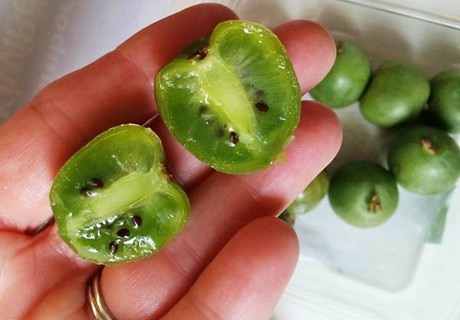Actinidia arguta is a promising new crop which has well adapted to European climate. Researchers from the Wroclaw University stated: “This study discusses both the identified and quantified polyphenolic compounds in the fruits of A. arguta and their in vitro anticholinergic activity. In particular, we identified or tried to identify 31 compounds, including 16 flavonols, 7 flavanols, 7 phenolic acids and 1 anthocyanin, on the basis of their retention times, accurate mass measurements and subsequent fragmentation data of mass, or through a comparison with reference substances and similar scientific studies. Among the detected compounds, 27 were found for the first time in the fruit of A. arguta”.

The results of the analyses showed that the total polyphenol content was 845.54 mg / 100 g of dry weight while the flavanols represented 92% of the total phenolic compounds. Further, the derivative flavonols were quantified, mainly the glycosylated and acetylated forms of quercetin (22.64 mg / 100 g of dry weight) and kaempferol (18.40 mg / 100 g of dry weight). The total content of phenolic acids was 29.63 mg / 100 g dry of weight, and the neoclorogenic acid was the most predominant compound.
Researchers pointed out, “This A. arguta fruits’ anticholinergic effect can be explained by the Pearson correlation found between flavonols, phenolic acids, flavan-3-oils and anthocyanins for both the acetylcholinesterase (AChE) and the butylcholinesterase (BuChE). The data collected on the polyphenolic quantities indicated that A. arguta fruits could be understood as a promising source of functional bioactive foods”.
Source: Aneta Wojdyło, Paulina Nowicka, 'Anticholinergic effects of Actinidia arguta fruits and their polyphenol content determined by liquid chromatography-photodiode array detector-quadrupole/time of flight-mass spectrometry (LC-MS-PDA-Q/TOF)', 2019, Food Chemistry, Vol. 271, pag. 216-223.
